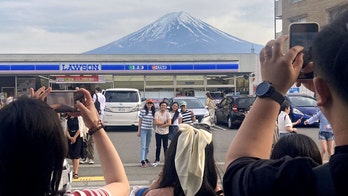An escalating exchange of fire between Israel and Hezbollah, backed by Iran, has heightened concerns of a wider conflict in the Middle East.
In a meeting with U.S. Chairman of the Joint Chiefs of Staff Gen. Charles Q. Brown, Israel's Defense Minister Yoav Gallant emphasized the "strategic junction" facing the nation. Israel is confronted with threats from Hamas in the south and Hezbollah in the north, both supported by Iran.
Despite U.S. efforts to broker a ceasefire deal with Hamas, the terrorist group has not agreed to terms while Israeli forces remain in security zones in Gaza. Gallant outlined Israel's primary objectives in its war against Hamas, including the dismantling of the group, securing the return of hostages, and enhancing security along its northern border.

Hezbollah's Provocations Ignite Fears of Regional War
Security officials highlight Hezbollah as the primary threat to Israel in the north, with routine missile and drone exchanges. The Israeli Defense Forces (IDF) expressed concern that Hezbollah's preemptive strikes on Sunday may have ignited a larger conflict.
Hezbollah launched rockets and drones at northern Israeli military positions, prompting Jerusalem to respond with airstrikes on Hezbollah strongholds in southern Lebanon. While no Israeli military installations were hit, the exchange resulted in three fatalities in Lebanon and one Israeli soldier killed.

Hezbollah's Provocations Ignite Fears of Regional War
The limited casualties from the Sunday assault have eased concerns of a broader war for now. However, comments from Iranian Armed Forces Chief of Staff Major General Mohammad Bagheri suggest that revenge against Israel remains a priority.
Despite the exchange of fire, progress in ceasefire negotiations with Hamas remains ongoing, according to White House National Security Communications Advisor John Kirby. The talks continue with a sense of urgency, with the aim of securing a ceasefire agreement.

Hezbollah's Provocations Ignite Fears of Regional War
However, Iran's unwavering stance toward Israel remains evident. Bagheri's comments indicate that the revenge for Hezbollah's losses is not complete.
In his meeting with Brown, Gallant reiterated Israel's commitment to enhancing its capabilities to counter the Iranian threat. He urged cooperation in developing groundbreaking capabilities across all areas to effectively confront the escalating aggression from Iran.

Hezbollah's Provocations Ignite Fears of Regional War
The escalating tension on Israel's northern border underscores the potential for a broader regional conflict in the Middle East. Hezbollah's actions, backed by Iran, have raised alarms and highlighted the need for Israel to strengthen its defense capabilities. The ongoing ceasefire negotiations with Hamas and the continuing support from the US add complexity to the situation.










